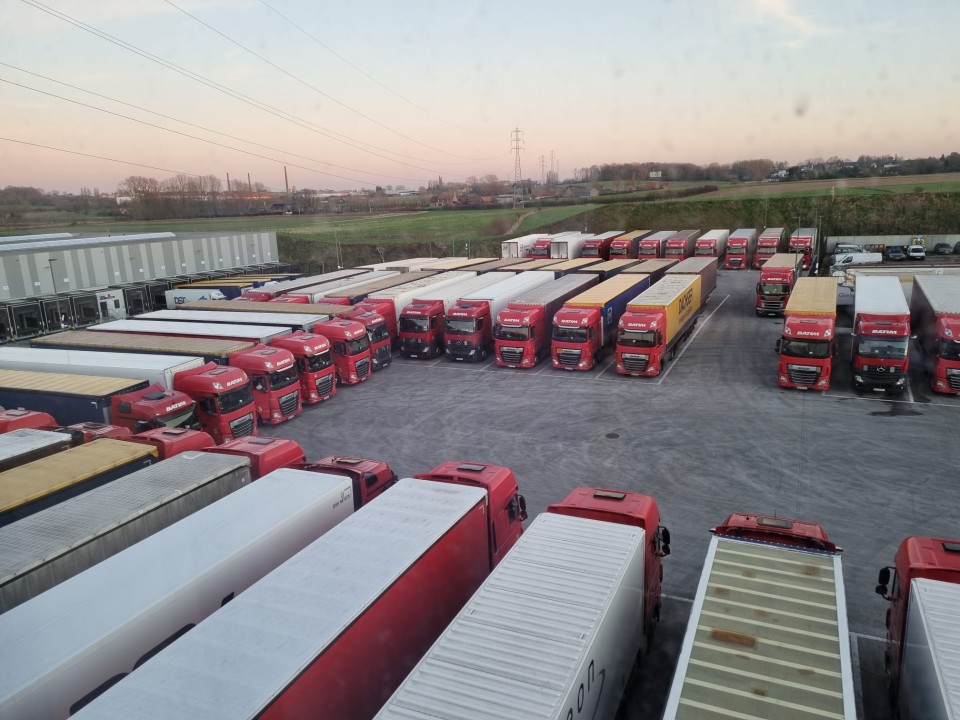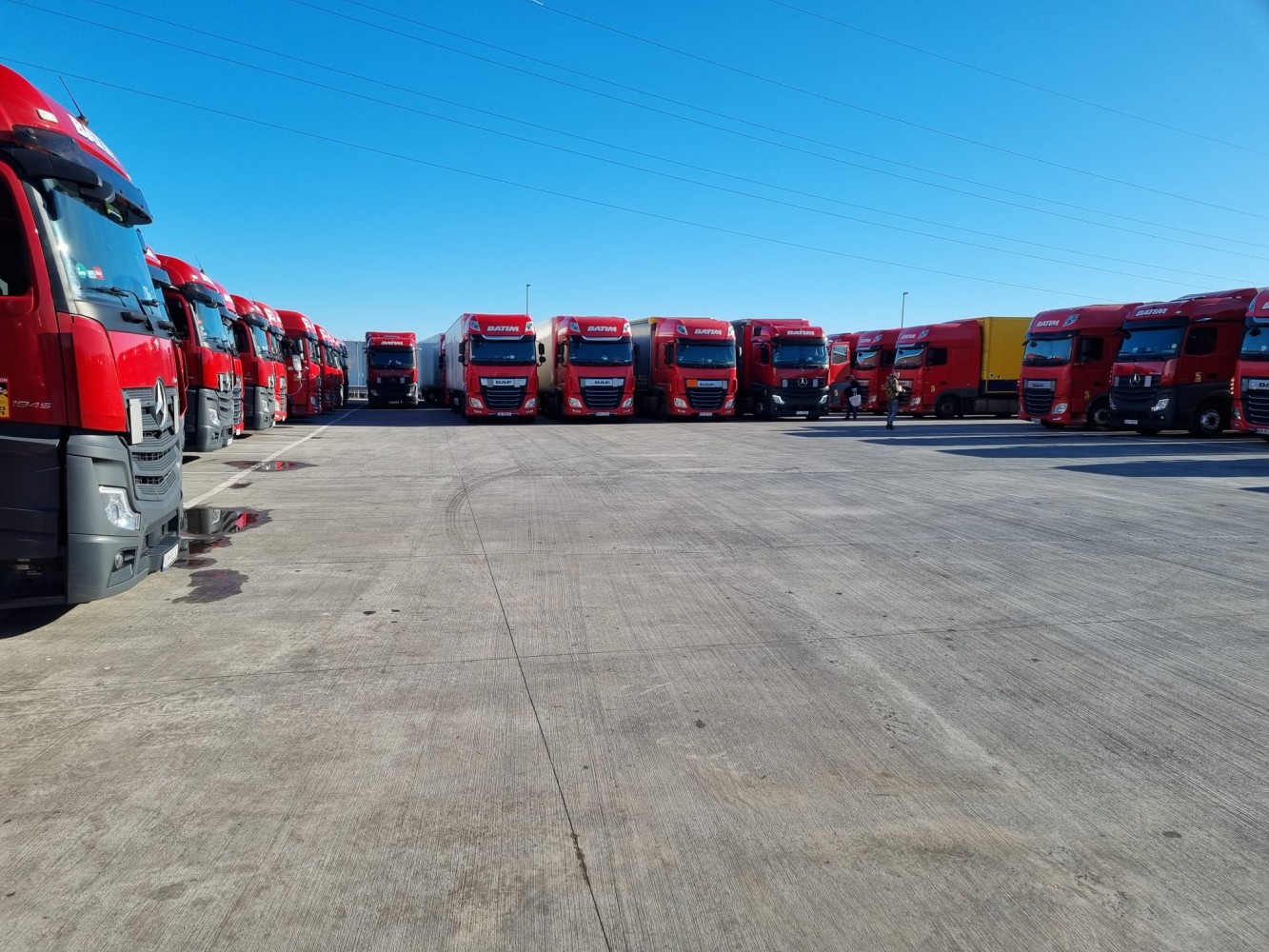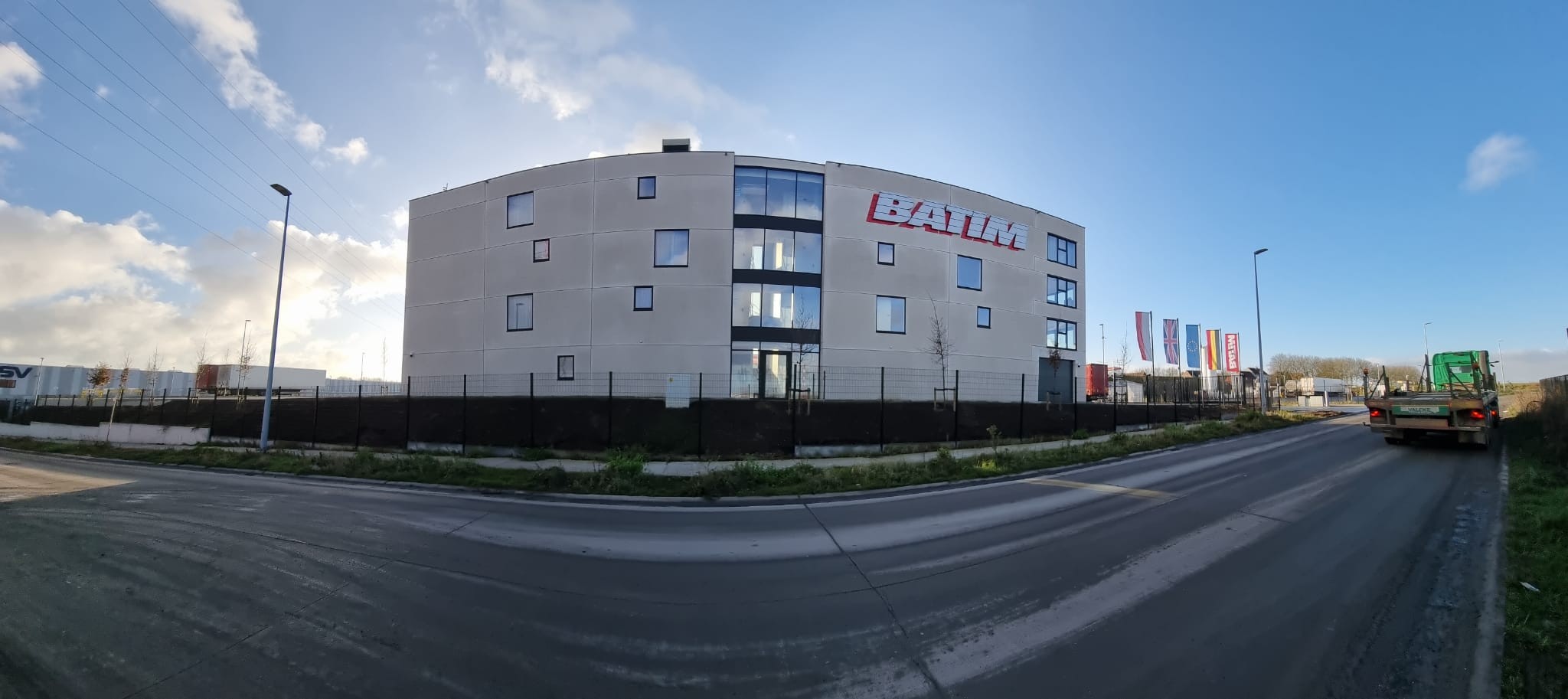
Susie Jones
Călătoria SNAP a Batim International Transport & Spedition
Creat: 19.02.2025
•
Actualizat: 19.02.2025
Înființată în 1995, Batim International Transport oferă servicii de transport și expediere de mărfuri în întreaga Europă. Compania se mândrește cu o calitate excelentă și cu o flotă de ultimă generație formată din vehicule SCANIA și Mercedes.
Compania cu sediul central în Stary Sącz, Polonia nu este străină de creștere. La începuturile sale, Batim a început cu două tractoare, iar acum are peste 500.
În acest scurt timp, compania a obținut numeroase acreditări și certificate - inclusiv premiul "Cel mai bun angajator al anului" în 2014 și recunoașterea revistei Forbes în 2015. Prin extinderea flotei companiei și îmbunătățirea serviciilor sale, compania se străduiește constant să crească.
Batim International s-a alăturat SNAP în primele zile și continuă să utilizeze contul SNAP pentru a rezerva locuri de parcare în întreaga Europă pentru flota sa mare. Am vorbit cu directorul de operațiuni, Krzysztof, care vorbește despre experiența companiei cu SNAP.
Beneficiile SNAP pentru flote
SNAP pune la dispoziția flotelor peste 450 de parteneri de servicii din întreaga Europă, unde acestea pot utiliza soluția noastră de plată pentru flote. "Ne-am alăturat SNAP pentru tranzacțiile fără numerar", explică Krzysztof.
Un beneficiu pentru multe flote, deoarece SNAP oferă o soluție de plată pentru a plăti fără numerar sau card pentru serviciile pentru camioane. Această soluție de plată poate fi utilizată pentru articole precum spălarea camioanelor, Dartford Crossing și parcarea camioanelor. Acesta din urmă, afirmă Krzysztof, a fost deosebit de benefic.
"SNAP m-a ajutat oferindu-mi posibilitatea de a rezerva o parcare, astfel încât nu trebuie să îmi fac griji cu privire la un loc pentru șofer."

Posibilitatea de a căuta un partener de servicii pentru stațiile de camioane prin SNAP a fost, de asemenea, un avantaj pentru Krzysztof. Acesta explică faptul că "posibilitatea de a verifica și de a găsi toate informațiile detaliate despre multe stații de camioane din diferite țări, pentru a fi sigur că există tot ceea ce este necesar în ceea ce privește anumite încărcături și facilități pentru șoferi" a fost una dintre cele mai utile caracteristici pentru el.
În plus, SNAP are beneficii uriașe pentru șoferii Batim. Flota de șoferi a lui Krzysztof poate sta liniștită știind că are la dispoziție o rețea largă de parcări pentru camioane și parcări pentru depozite. Krzysztof spune că "rețeaua largă de parcări pentru camioane" a SNAP a fost neprețuită.
Multe întreprinderi de pe continent și-au sporit câștigurile cu ajutorul sistemului nostru de parcare pentru depozite. Programul permite flotelor să își ofere spațiile de parcare din depozite rețelei și să câștige bani în plus - ajutând șoferii să evite zonele de așteptare vulnerabile și zonele industriale. Batim International contribuie la atenuarea lipsei de locuri de parcare în Europa prin aderarea la acest sistem cu depozitul său din Belgia. Depozitul oferă 20 de locuri pentru alți șoferi atunci când camioanele lor sunt pe drum.
Impactul partenerului de servicii SNAP asupra bunăstării șoferilor
Bunăstarea șoferilor a fost un subiect fierbinte de discuție în cadrul comunității transportatorilor rutieri. Fiind o profesie solicitantă, este ușor de văzut cum orele lungi, izolarea socială și un stil de viață sedentar pot afecta sănătatea mintală.
Flotele au responsabilitatea de a avea grijă de bunăstarea șoferilor lor. Cu toate acestea, stațiile de camioane pot avea și ele un impact semnificativ. Locurile de parcare și stațiile de camioane cu facilități de bază pot îmbunătăți semnificativ bunăstarea șoferilor. Un lucru pe care Krzysztof și echipa îl consideră vital pentru flota lor de peste 800 de șoferi.
Când a fost întrebat ce pot face stațiile de camioane pentru a contribui la bunăstarea șoferilor, Krzysztof a declarat: "În principal, șoferii au nevoie de un duș și o toaletă curate." Aparent o soluție simplă pentru mulți, totuși, impactul pe care îl poate avea asupra experienței unui șofer este substanțial.

Serviciul clienți cu SNAP
La SNAP ne mândrim cu faptul că oferim flotelor și șoferilor sprijinul de care au nevoie pentru a funcționa eficient și eficace. Echipa noastră experimentată de Customer Service & Account Management asistă flotele și șoferii cu orice întrebări. Ceva ce Krzysztof și echipa au găsit util.
"Am contactat echipa de servicii pentru clienți a SNAP - prin e-mail, precum și la telefon. Întotdeauna am fost întâmpinați cu o abordare individuală cu privire la un singur caz, înțelegere și bunăvoință din partea angajaților SNAP pentru a ajuta cât mai mult posibil", explică Krzysztof.
Înscrieți-vă astăzi flota pentru SNAP
Soluția noastră de plată pentru flote este utilizată la fiecare 13 secunde pe întreg continentul pentru a plăti serviciile pentru camioane. Vizitați snapacc.com pentru a vă alătura celor peste 7.000 de flote care utilizează contul SNAP ca soluție completă de plată pentru flote.


